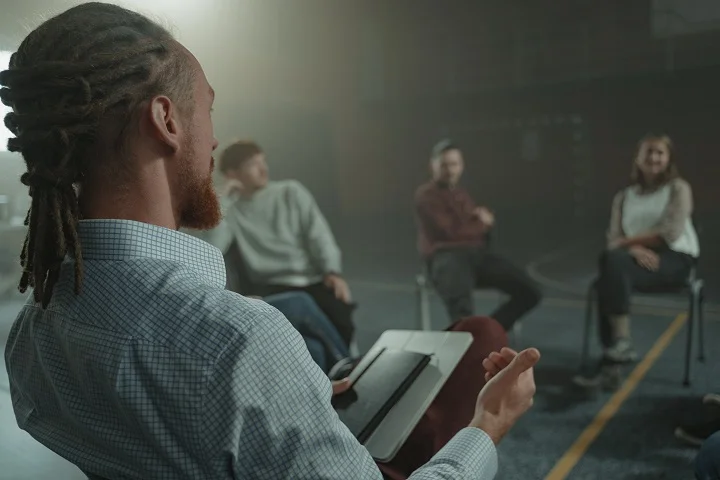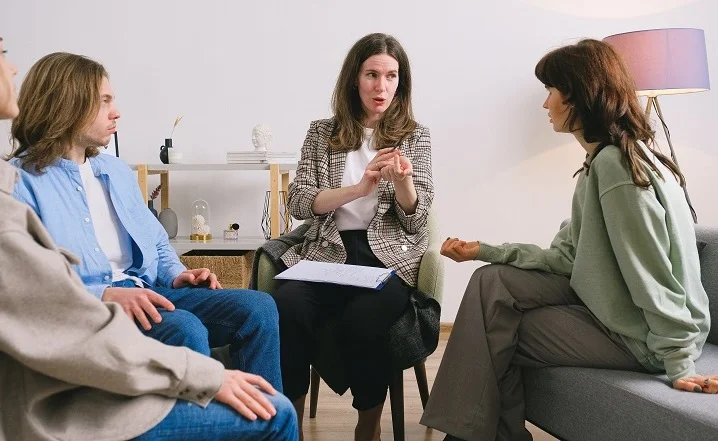- Home
- Types of Addiction
- Alcoholism and Alcohol Dependency
- How To Stop Drinking Alcohol
How To Stop Drinking Alcohol
For countless reasons, many people have asked themselves the question: “how can I reduce my alcohol intake?”
We all know that the excessive consumption of alcohol isn’t just unhealthy, but that it is actually dangerous to our physical and mental wellbeing.
A lot of research has been conducted on the impact of alcohol consumption on the body, and some recent studies have shown that the consumption of any amount of alcohol is unhealthy and leads to negative outcomes.
On the other hand, there is plenty of research with conflicting results which suggests that consuming alcohol in moderation only has a minor impact on your short- and long-term health.

Nevertheless, whether you are an alcoholic or just concerned about your alcohol intake, you might be considering abstinence from alcohol for the good of your health and for the good of those around you.
Unfortunately, there is no single method for ending your consumption of alcohol that works for everyone.
Everyone’s alcohol intake is different, and every person has a different reason for drinking.
Just as every person is unique, you will need your own unique method for reducing your alcohol intake.
Am I Drinking Too Much?

Before you aim to stop drinking alcohol, it can be useful to assess how much you’re drinking and whether or not it meets health guidance.
If what you’re drinking is shown to be excessive, this can then act as a powerful source of motivation going forward.
To do this, set yourself a preliminary challenge.
Before you try to cut down, record what you spend on alcohol and what you drink over the course of a normal week.
Then at the end of the week, compare the number of units you drink with medical advice (which you can find online).

In the UK, the Chief Medical Officer currently advises that you drink no more than 14 units a week and that this amount should be spread across 3 days or more.
For some context, a 750ml bottle of wine can contain 10 units, while a pint of ordinary strength beer, lager, or cider is usually over 2 units.
This means that if you consume over a bottle of wine and two pints of beer over the course of a week, you are probably exceeding health guidelines.
This is a good indicator that you are drinking too much, and you should either stop drinking or significantly reduce your intake.
Expenditure

Now, look at the total amount of money you spend on alcohol over the week.
If you buy alcohol from an off-license or supermarket, and also regularly drink at a local pub or bar, your spend could easily be in excess of £30 a week, which is over £100 a month.
This cost alone can be a justification for reducing your alcohol intake, and imagine what you might be able to do with that extra money when it isn’t being spent on alcohol.
Having considered whether you’re drinking too much, here are some tips and tricks which could help you on your journey to drinking less alcohol, or even towards complete abstinence.
Set A New Routine

The evenings are the times when most people find themselves drinking.
Drinking in the evening can form part of your social life, as it might be when you are meeting up with friends at your local.
Some people also use drinking in the evening as a way to relax and unwind at the end of the day after work, or a stressful day.
Instead of automatically reaching for a bottle of beer from the fridge, try and set yourself a new evening routine.
Maybe you could exercise when you get in from work, or you could consider just going out for a walk to clear your mind in the evening instead.
Then, when your exercise or walk is finished, you could take a shower and make yourself some food, before watching TV or reading a book and going to bed.
The time you would normally spend with a drink in your hand in the evening can be put to better, more productive use.
Think about any projects which you want to complete, and set your mind to completing them instead of drinking by default.
Setting Goals

As you try to reduce your alcohol intake and stop drinking, it is important to be realistic with yourself.
You might want to go cold turkey, but often this can just lead to a relapse and this rarely works in the long term.
Instead, begin by trying to reduce your alcohol intake intermittently: set yourself achievable goals and reward yourself when you meet them.
Start with simply trying to reduce your alcohol intake by 2 units a week.
This might only work out at one beer, which won’t seem like a lot, but it also won’t be too intimidating and is a good place to start.

At the end of the month, if you’ve met your goals, reward yourself with some of the money that you’ve saved along the way.
As you get used to drinking less, you can begin to accelerate your reduction, until your alcohol consumption is close to zero.
Then, you’ve proved what you can do and you can reassess your goals and begin to have a healthier relationship with alcohol.
Support From Family And Friends

One great way to stop drinking alcohol is to share your intentions with your family and friends.
Tell them, explicitly, that you are trying to reduce your alcohol intake.
This might mean your friends make different plans that don’t revolve around drinking, and your family can offer you support along the way.
Telling your social circle about your goals keeps you accountable to them, and adds an extra layer of motivation as you want to make them proud by succeeding in making a healthy and positive lifestyle change.
Non-Alcoholic Alternatives
Increasingly, there is a wide range of excellent non-alcoholic alternatives to many classic beverages.
These offer a great way for many people to still enjoy the social side of going out to pubs, bars, and restaurants without having to drink alcohol.
Afterall, if your social circle enjoys going out to drink you don’t want to miss out and that, and it’s good to still remain involved in your social life while you reduce your alcohol intake.
On top of this, you might just find that you enjoy having a 0% drink just as much as an alcoholic drink, as you can enjoy the taste and social aspect of drinking without the negative consequences of a hangover or grogginess the next day.
Support Groups

There are other, more formal options on offer to you as well.
Support groups like Alcoholics Anonymous are specifically dedicated to helping you to live with alcohol in a healthy way, with the support of people around you with similar experiences.
If you have an unhealthy and damaging relationship with alcohol, you will find that the attendees of alcoholics anonymous understand you as they’ve had their own damaging relationships with alcohol.
Support groups can keep you on track and motivated even when stopping drinking alcohol seems hardest, and they are an effective method to consider.
Therapy

Another option available to you could be accessing private therapy.
In therapy, you will talk about the underlying causes of your unhealthy relationship with alcohol, and by understanding these you can look at alcohol in a new light and understand why you’ve struggled with it in the past.
Therapy is an effective way to promote behavioural change, and people often find that the benefits of therapy go beyond their initial aims.
However, private therapy will come with a financial cost, which means that it isn’t necessarily accessible to everyone.
Rehabilitation

The final option is seeking the support of rehabilitation services.
If you cannot stop drinking alcohol on your own, you may need professional support from medical experts.
Rehab will help you to deal with any withdrawal symptoms and will support you to achieve your goals in an efficient way, with your long-term wellbeing in mind.
Going to rehab is a big step and will sometimes require time off work and away from family and friends.
However, if you find that your relationship with alcohol is out of your control, it could be your best option.
Like therapy, rehab can be expensive.
However, if you can afford it, the benefits to your life could end up being priceless.
Get Help Today

Whilst for many people drinking alcohol is a casual, social part of life, it can easily become damaging.
When you have reached the point where alcohol is actively damaging your life, the time has come to make a change.
When you reach out to our support line, you1’re making the decision to better your life in the best way possible.
Our call handlers are professional, experienced, entirely confidential and are waiting for the chance to help you live a happier, healthier life.


